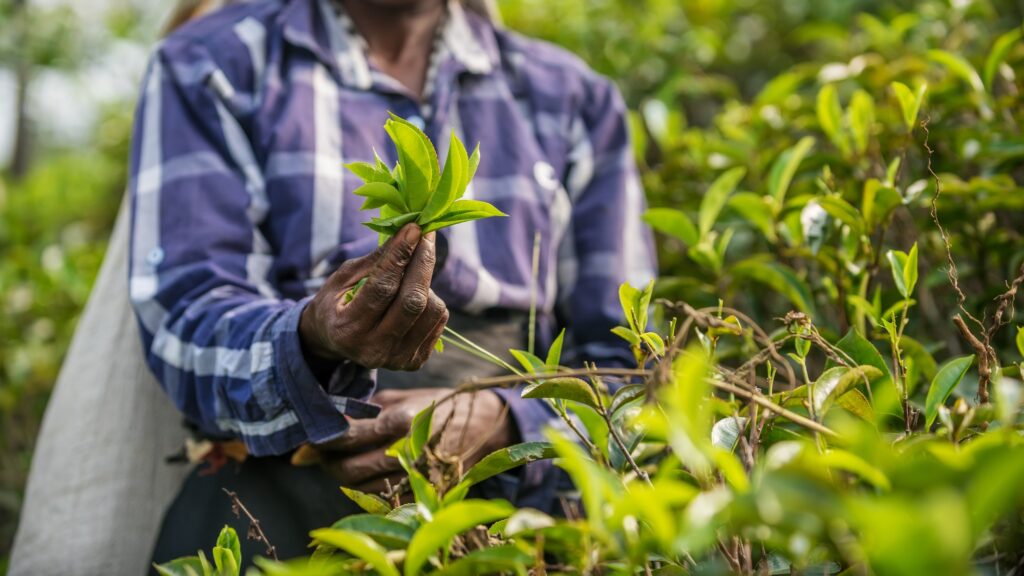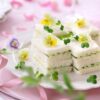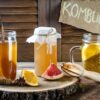
Welcome to the enchanting world of Ceylon Tea, where history, tradition, and unparalleled taste come together to create a truly exceptional brew. As you indulge in a cup of this rich and refined beverage, you’ll embark on a journey through the misty mountains and lush tea plantations of Sri Lanka, where the essence of this prized tea is cultivated.
With a legacy dating back to the 19th century, Ceylon Tea has gained international acclaim for its superior quality and distinct flavor profiles. Grown in the heart of Sri Lanka’s idyllic tea-growing regions, the tea leaves are carefully handpicked and processed to maintain their delicate flavors and vibrant aromas.
Sip by sip, you’ll discover the exquisite taste that sets Ceylon Tea apart from other varieties. From the robust and full-bodied flavors of black tea to the delicate and floral notes of green tea, each cup offers a unique sensory experience that captivates the palate.
Whether enjoyed hot or iced, Ceylon Tea is the embodiment of Sri Lanka’s rich tea heritage and commitment to excellence. So take a moment to savor the true essence of this extraordinary brew and elevate your tea-drinking experience to new heights.
The history and origins of Ceylon tea
To truly appreciate the rich and refined taste of Ceylon Tea, it’s important to understand its fascinating history and origins. The story of Ceylon Tea dates back to the early 19th century when tea was first introduced to Sri Lanka by the British. At the time, the island was predominantly focused on coffee production, but a devastating coffee blight led to the collapse of the industry. In an effort to revive the agricultural sector, the British turned to tea cultivation. The cool climate and fertile soil of Sri Lanka’s central highlands proved to be ideal for growing tea, and thus began the journey of Ceylon Tea.
The first tea plantations were established in the regions of Kandy and Nuwara Eliya, and the industry quickly flourished. The British brought in experienced tea planters from India and China, who imparted their knowledge and expertise to the local workforce. The cultivation and production techniques developed during this time laid the foundation for the exceptional quality and distinctive taste that Ceylon Tea is known for today. Over the years, tea became an integral part of Sri Lanka’s cultural and economic fabric, and the country gained a reputation as one of the world’s premier tea producers.
The unique characteristics of Ceylon tea
What sets Ceylon Tea apart from other varieties is its unique characteristics that are shaped by the island’s diverse climate and geography. Sri Lanka is blessed with a range of microclimates, each with its own distinct temperature, rainfall, and elevation. This diversity contributes to the wide variety of flavors and aromas found in Ceylon Tea.
The high-grown teas, cultivated in the cool mountainous regions, are known for their bright and brisk flavors. They possess a delightful balance of strength and complexity, with hints of citrus and floral undertones. On the other hand, the low-grown teas, grown in the warmer coastal regions, offer bolder and more robust flavors, often with a hint of spice. These teas are prized for their full-bodied character and rich, malty notes. The mid-grown teas, which lie between the high and low regions, showcase a harmonious combination of both, offering a well-rounded and versatile cup.
In addition to its diverse flavor profiles, Ceylon Tea is also revered for its exquisite appearance. The tea leaves are long and wiry, with a glossy sheen that reflects the care and craftsmanship involved in their production. When brewed, the leaves unfurl to release their vibrant colors and captivating aromas, creating a visually stunning and aromatic experience.
The different types of Ceylon tea – black, green, and white
Ceylon Tea encompasses a wide range of varieties, each offering its own distinct flavor and character. The three main types of Ceylon Tea are black, green, and white.
Black tea, the most widely consumed type, is known for its bold and robust flavors. The leaves undergo a process of withering, rolling, oxidation, and drying, which gives them their characteristic dark color and rich taste. Depending on the region and elevation, black teas can range from light and delicate to strong and full-bodied. They are often enjoyed with milk or sugar, but can also be savored on their own for a more nuanced experience.
Green tea, on the other hand, is minimally processed to preserve its natural antioxidants and delicate flavors. The leaves are gently withered and then quickly heated to halt oxidation. This results in a tea with a fresh, grassy taste and a light, golden hue. Green tea is known for its health benefits and is often consumed for its calming and rejuvenating properties.
The least processed of all is white tea, which is made from the young buds and leaves of the tea plant. The leaves are simply dried and undergo minimal processing, allowing them to retain their delicate flavors and natural sweetness. White tea is characterized by its pale color and subtle, floral taste. It is often considered the most refined and delicate of all teas, offering a truly exquisite tea-drinking experience.
How Ceylon tea is produced and processed
The production of Ceylon Tea is a meticulous and labor-intensive process that involves several stages. It begins with the careful cultivation of tea bushes in the lush, rolling landscapes of Sri Lanka’s tea-growing regions. The plants are pruned to ensure optimal growth and yield, and the leaves are handpicked to maintain their integrity and quality.
Once the leaves are harvested, they undergo a series of steps to transform them into the final tea product. The first step is withering, where the leaves are spread out and left to wilt for several hours. This reduces their moisture content, making them pliable for the next stage.
Next, the withered leaves are rolled to release their natural juices and enzymes. This process helps to initiate oxidation, which is crucial for the development of flavor and aroma. The extent of rolling determines the ultimate shape of the tea leaves, whether they are twisted, curled, or rolled into balls.
After rolling, the leaves are left to oxidize in a controlled environment. This allows the tea to develop its characteristic flavors and aromas. The oxidation process is carefully monitored, and the leaves are periodically checked to ensure the desired level of oxidation is achieved.
Once the desired oxidation level is reached, the leaves are gently dried to halt the oxidation process. This is done either by exposure to hot air or by pan-firing in the case of green tea. The drying process removes any remaining moisture from the leaves and helps to preserve their flavors and aromas.
Finally, the dried leaves are sorted and graded based on their size, appearance, and quality. This ensures consistency in the final product and allows consumers to choose teas that suit their preferences. The teas are then carefully packed and shipped to tea enthusiasts around the world, ready to be savored and enjoyed.
The health benefits of Ceylon tea
In addition to its exquisite taste and aroma, Ceylon Tea offers a host of health benefits that make it a popular choice among tea lovers. Rich in antioxidants, Ceylon Tea helps to protect the body against free radicals and oxidative stress. These antioxidants have been linked to a range of health benefits, including reduced risk of heart disease, improved brain function, and enhanced immune system.
Ceylon Tea also contains compounds called polyphenols, which have been shown to have anti-inflammatory and anti-cancer properties. Regular consumption of Ceylon Tea has been associated with a lower risk of certain types of cancer, such as breast, prostate, and colon cancer.
Furthermore, Ceylon Tea is a natural source of caffeine, which can provide a gentle and sustained energy boost. Unlike coffee, which can cause jitters and crashes, the caffeine in tea is released slowly, resulting in a more balanced and sustained effect. This makes Ceylon Tea a perfect choice for those looking for a natural and healthier alternative to coffee.
Additionally, Ceylon Tea is believed to aid digestion, promote weight loss, and improve oral health. It has also been found to have antibacterial and antiviral properties, making it an excellent beverage to support overall health and well-being.
The cultural significance of Ceylon tea in Sri Lanka
Ceylon Tea holds a special place in the hearts and minds of Sri Lankans, as it is not only a source of pride but also a crucial component of the country’s cultural heritage. Tea plantations dot the landscapes of Sri Lanka, shaping the country’s picturesque scenery and providing employment opportunities for thousands of workers.
Tea is deeply ingrained in Sri Lankan culture, with tea-drinking being a cherished ritual for many. It is a common sight to see locals enjoying a cup of tea at all times of the day, whether it’s a refreshing morning cup or a soothing evening brew. Tea is often served to guests as a gesture of hospitality and is an integral part of social gatherings and ceremonies.
The tea industry also plays a vital role in the country’s economy, contributing significantly to Sri Lanka’s export earnings. Ceylon Tea has earned a global reputation for its exceptional quality and is exported to over 90 countries around the world. The tea auctions held in Colombo, the capital city, are a testament to the industry’s importance, with buyers from all over the world participating to secure the finest Ceylon teas.
Furthermore, Ceylon Tea has been recognized and celebrated internationally, winning numerous awards for its exceptional taste and quality. It has become synonymous with Sri Lanka and is considered one of the country’s most iconic symbols, representing its rich tea heritage and commitment to excellence.
The best ways to brew and enjoy Ceylon tea
To truly appreciate the rich and refined taste of Ceylon Tea, it’s important to brew and enjoy it with care. Here are some tips to help you make the most of your Ceylon tea experience.
- Start with fresh, high-quality water: The quality of water used can greatly impact the taste of your tea. Use fresh, filtered water to ensure the purest and most authentic flavors.
- Choose the right temperature: Different types of Ceylon tea require different brewing temperatures. Boiling water is ideal for black teas, while green and white teas should be brewed at lower temperatures to preserve their delicate flavors.
- Use the correct amount of tea leaves: The amount of tea leaves used will depend on personal preference and the strength of flavor desired. As a general guideline, use one teaspoon of loose tea leaves per cup of water. Adjust the quantity accordingly to suit your taste.
- Steep for the right amount of time: Steeping time also varies depending on the type of Ceylon tea. Black teas generally require a longer steeping time, ranging from 3 to 5 minutes, while green and white teas require shorter steeping times, usually around 2 to 3 minutes. Be mindful not to oversteep, as it can result in a bitter taste.
- Experiment with flavors and additions: While Ceylon Tea is delicious on its own, you can also enhance its flavors by adding a touch of honey, lemon, or milk. Experiment with different combinations to find your perfect cup.
Remember, brewing and enjoying tea is a personal experience, so feel free to adjust the brewing parameters to suit your preferences. The goal is to create a cup of Ceylon Tea that brings you joy and allows you to savor the true essence of this exceptional brew.
Where to buy authentic Ceylon tea
If you’re looking to experience the rich and refined taste of Ceylon Tea, it’s important to source it from reputable and authentic suppliers. Fortunately, there are several options available to purchase genuine Ceylon teas.
One of the best ways to buy Ceylon Tea is to visit Sri Lanka itself. The country is home to numerous tea estates and tea factories that offer guided tours and tastings. This allows you to witness firsthand the tea production process and choose from a wide range of teas to take home.
For those unable to travel to Sri Lanka, there are numerous online retailers that specialize in Ceylon Tea. These retailers source their teas directly from Sri Lankan tea estates, ensuring authenticity and quality. When purchasing online, it’s important to read reviews and choose reputable sellers to ensure you are getting the real deal.
Additionally, specialty tea shops and gourmet stores often carry a selection of Ceylon teas. These establishments are known for their expertise and commitment to quality, making them a reliable source for authentic Ceylon Tea.
No matter where you choose to purchase your Ceylon Tea, be sure to look for teas that are labeled as “Pure Ceylon Tea” or “Single Origin Ceylon Tea.” This guarantees that the tea is sourced exclusively from Sri Lanka and meets the highest standards of quality and authenticity.
Embracing the rich and refined taste of Ceylon tea
Ceylon Tea is a beverage that offers much more than just a delicious taste. It is a culmination of history, tradition, and craftsmanship that is deeply intertwined with the cultural fabric of Sri Lanka. From its humble beginnings in the 19th century to its international acclaim today, Ceylon Tea continues to captivate tea lovers around the world with its rich and refined flavors.
By indulging in a cup of Ceylon Tea, you embark on a sensory journey through the misty mountains and lush tea plantations of Sri Lanka. Each sip reveals a world of flavors and aromas, showcasing the diverse microclimates and rich terroir of the island.
So why not take a moment to savor the true essence of this extraordinary brew? Whether you prefer the robust and full-bodied flavors of black tea or the delicate and floral notes of green tea, Ceylon Tea offers a sensory experience that is sure to captivate your palate. Elevate your tea-drinking experience to new heights and embrace the rich and refined taste of Ceylon Tea.






